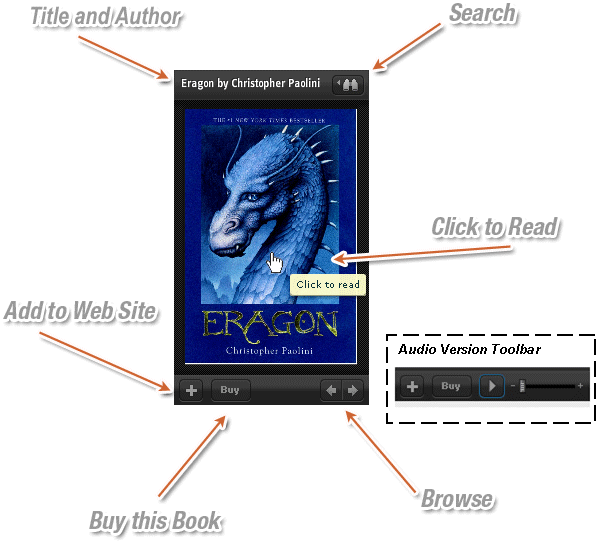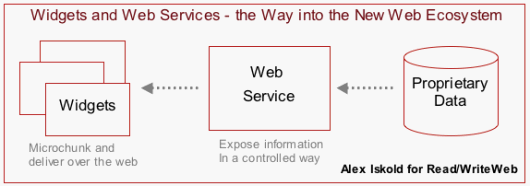When you think of widgets you typically think of web 2.0 companies. Flickr, Digg, del.icio.us were among the first services with widgets and many more followed. Indeed, if you’re a startup then it could be seen as unusual nowadays if you don’t have a widget strategy.

But the older and larger companies are still trying to wrap their hands around widgets. Just recently, we profiled NBC signing up to use Clearspring. This move clearly signals that NBC is serious about their widgets strategy.
In this post we look at an unlikely widget company, Random House Publishing. A quick look at their web service and the widget is enough to realize that the company “gets it”. But a deeper look reveals that Random House not only has gotten the widget bug, it also has a broad and solid strategy around widgets. The publishing giant is using widgets to build its presence and brand awareness everywhere online.
The Random House Book Widget
There is nothing random (pun intended) about the Random House book widget. It is business engineering meets technology at its best. The widget is carefully crafted to:
- Showcase Random House books everywhere online
- Market the Random House brand
- Let users preview books
- Let users buy books
- Spread the widget virally

The widget creators were focused on making the Random House widget useful to their customers. They built in search inside the widget and also ‘browse this book’ features. It is quite an impressive set of features to pack inside a widget. Take a look:
Insight – The Random House Book Service
The Random House widget is powered by a web service called insight. This service exposes a set of programming interfaces for searching and browsing the contents of Random House Books. Insight is an impressive, ongoing effort to index, digitize, distribute and set the terms for using book content online. Developers can query Insight using a REST API and get back XML responses. Here are some examples of supported requests:
- How many books and pages from the archive contain the word “Ulysses?”
- Which books contain the keyword, “Ulysses,” and what is the context in which it first appears?
- What pages of the book, The Iliad, contain the keyword, “Ulysses,” and what is the context in which it appears?
- The full-page image of pageID 256 of The Iliad.
- The thumbnail image of page 256 of The Iliad.
- Where can I find links to the five pages before and after page 256 of The Iliad?
- Where can I find links to all of the sample pages made available from The Iliad.
From the above use cases it is clear that Insight is a web service that offers a specific, vertical interface for book search. This is its strength and really the way that vertical web services should be done.
Widgets and Web Services – the way into the New Web Ecosystem
It is difficult not to generalize what Random House is doing. Exposing its information as a Web Service and building a Widget to deliver microcontent to millions of web pages is the new way that serious companies should play online. A Web Service serves a few purposes, but the most important one is opening up the data in a controlled way. This is what Amazon has been doing for years and Facebook just did recently. We covered this topic extensively in our When Web Sites Become Web Services post.

Building a Widget on top of the Web Service is also important, not only because it lets the company create a viral distribution channel, but because it offers a sanity check for correctness of the Web Service. If the widget developer runs into issues with the Web Service, so will everyone else. By creating a widget and exercising the Web Service, the company gets to test it out first.
Conclusion
Its great to see an older and bigger company that gets widgets and web services. Random House is leveraging its information in a controlled way to businesses and exposes it in a viral way to end users. This is savvy and economical. Their widget implementation nails the user experience, packing the key functions of searching and browsing into the widget. The only thing that would be great to add to the widget is user and expert reviews, but this does not seem to be the information that Random House has.
Let us know what you think about the Random House strategy. Also please share other great examples of web service and widget combinations that you have seen lately.

















